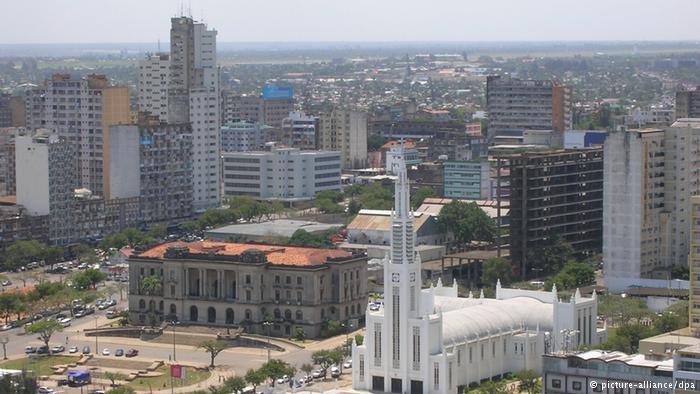Mozambique: 'Naparamas' surrender and ask for government support in Mutuali - O País | Photos
15 years after the death of Siba-Siba Macuácua, still impunity – Mozambique

DW (File photo) / The crime took place on 11 August 2001, in Maputo
The economist Antonio Siba-Siba Macuacua was killed while investigating corruption at Austral Bank and to date, no one has been convicted of his murder. In Mozambican civil society, the word for it is: impunity.
Fifteen years after the murder of economist and former president of the Southern Bank of Mozambique, it is still not known who was behind the crime. Antonio Siba-Siba Macuacua was found dead on the stairs of the headquarters of the bank in Maputo on August 11, 2001.
At the time, Siba-Siba had been appointed president of the Austral Bank to work on the recovery of the debt of millions of meticais, contracted due to poor bank management. Many of the debtors were Mozambican politicians and businessmen.
The investigation initiated by the economist ended up costing him his life, says Baltazar Fael, researcher at Mozambique’s Centre for Public Integrity (CIP). “The reason behind the murder is linked to the issues of Banco Austral, where Siba-Siba was appointed as interim director and was investigating debts involving people from the Mozambique ‘nomenclature’,” Fael says.
According to the representative of CIP: “There is clearly a link between the debts that had been incurred by certain figures and the murder of Siba Siba-Macuácua.”
Impunity State
According to Fael, after the death of the economist, the Mozambican state launched an investigation to investigate the murder and also the corruption case involving the Austral Bank. But today, 15 years later, the cases are still unresolved.

“What is known is that the process was at the time divided into two: one related only to the mismanagement of the Austral Bank and the other was related to the murder. As far as is known, the case investigating the mismanagement was filed,” he explains.
The case related to the murder of Antonio Siba-Siba was forgotten, according to Fael. “It seems that case was abandoned by the Mozambican state. And, after all this time, we don’t believe the case will ever be solved,” he says.
Fael also notes that the Attorney General stopped releasing information about the progress of the case or the process linked to the murder “a long time ago”. “There is still nothing conclusive, after all this time, which is very disturbing for Siba-Siba’s family, who to this day do not know who killed their loved one.”
Corrupt politicians and businessmen
The case investigated by Siba-Siba involved important people in political and business circles in Mozambique. At the time the economist took office, the Austral Bank was on the verge of bankruptcy.
“The political elite is closely linked to the business life of this country. And this elite has facilities to seek credit in certain banks,” Fael says, stressing that the Austral Bank was managed by the Mozambican state. “Therefore, those people, with the political power that they had, would seek money from the bank and then not honour their commitments to pay it back. This led to the bank going bankrupt and, when he went to investigate it, ended up killing Siba-Siba.”
Injustice and racial issues
Fael criticizes Mozambique’s justice system and said that after 15 years the feelings of impunity remain, along with “injustice” and “racial discrimination”.
According to the CIP investigator, the case of journalist Carlos Cardoso, who was assassinated in 2000, is one of the few that has been investigated properly.
“People do not have information on the case of Siba-Siba, and start to speculate that this is because he was black. The case of Carlos Cardoso has been resolved because he was white. That’s what people think,” he explains.
“This is not the first case, murder or otherwise, that has been badly handled in Mozambique. This shows the weakness of our system of justice, and how compromised it is in the fight against corruption,” Fael says.
DW Africa contacted the office of the attorney general of Mozambique by phone and e-mail, but the institution showed no interest in commenting on the case.













Leave a Reply
Be the First to Comment!
You must be logged in to post a comment.
You must be logged in to post a comment.